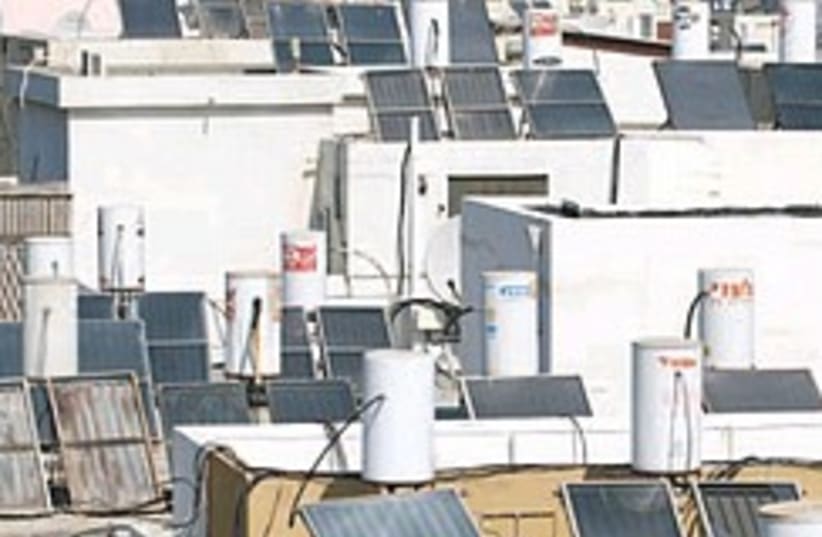Public Utilities Authority – Electricity (PUA) head AmnonShapira announced in a newspaper interview over the weekend that electricityprices would drop precipitously in February because of the switchover to muchcheaper natural gas rather than the more expensive fuel or diesel oil.
That announcement via the press prompted NationalInfrastructures Minister Uzi Landau to demand Shapira's immediate resignationon Sunday night, a source close to the minister told The Jerusalem Post Monday.
"Shapira and PUA are sabotaging the minister's agenda.Instead of implementing policy, it is attempting to set the policy and theagenda, and that is where the minister drew the line," the source charged.
But wait, isn't reducing electricity prices by a significantmargin a positive development meant to assist the consuming public?
Not necessarily, contends the ministry, environmental groupsand other sources in the energy field.
Lower prices means more electricity consumption, since if itis cheap people don't worry so much about using it. That's a big problem forenergy strapped ,they contend. Demand is growing every year and the Israel Electric Corporationis struggling to keep up with enough power plants. Reserves are at a mere 2%,when they should be between 17-25%.
"already has some of the lowest prices for electricity in the Westernworld," the ministry source added.
So what should happen instead?
Instead of lowering prices, the prices should either staythe same or even go up. The resulting difference between cost and price shouldthen be put aside in a special fund, overseen by an external observer, forenergy efficiency projects, the ministry, the environmental groups, and energysources all agree.
Strangely enough, PUA also agrees that that would be a gooduse for the money. However, it contends that as the law stands now, such a fundwould be illegal. According to the authority, it is its job as a regulator toset the basis for prices which reflect the cost of production every five years.Which means if the cost of electricity production dropped because of the replacementof expensive fuels with cheaper ones, the authority is legally bound to adjustthe price to the consumer accordingly. It is that five year price update whichis due out next month.
Energy efficiency is generally funded in the Western worldeither directly from the state budget or by adding 1% to the electricitytariffs, a PUA spokeswoman told the Post Monday. However, if the entire pricedifferential were to be used for such a fund, it would constitute an illegalsubsidy and a fine on the public.
The spokeswoman said that PUA took the idea for an energyefficiency fund to the ministry two years ago and said it required a change inthe law before it could be implemented.
"Since then, nothing has been done," she said.
However, the source close to Landau responded that "theAuthority was fully aware of our efforts to change the law. We had haddiscussions with them about it. But instead they launched a preemptive strike.
"For months, they had been denying there would be anysubstantial change in electricity prices. Then they dropped this bombshell onus and on the public through a press interview. They didn't even have thecourtesy to bring their intention openly to the minister," the sourcereplied.
The main agenda of the ministry right now is reducing electricityusage in accordance with the government decision from September 2008 to reduceusage by 20% by 2020. Lowering rates yanks the main plank out of that platform,he declared.
Moreover, reducing rates will pull the plug on the emergingEnergy Service Company (ESCO) industry. The ministry has been encouraging theindustry which consults to companies and entities how to reduce their energyusage.
"Instead of a seven to eight year return on investment,it would mean a 15 year payback [which makes it a far less attractiveinvestment]," the source said.
Energy efficiency is critical from an environmentalperspective as well, since the less consumption, the less need for pollutingpower plants, he said. Energy efficiency is even more important than renewableenergies since it is cheaper and just as effective.
While natural gas is considerably less polluting than dieselor fuel oil, it is still a fossil fuel and not a clean energy source. Moreover,if demand continues to rise, the argument for another coal-fired power plant in gets correspondingly stronger.
That's why the Israel Energy Forum and other environmentalgroups have been working with the ministry on energy efficiency initiatives.
The source added that Landau's decision to call forShapira's resignation also derived from months of delays on other projects. Thetariff for medium –sized solar fields was delayed by PUA, they were supposed topresent a plan to incentivize reducing usage and never did, and only half ofthe pumped storage quota the ministry decided was necessary was approved, thesource listed.
The PUA spokeswoman charged in response that the demand forShapira's ouster emerged after he contended in the interview that the ministrywas not pushing forward the reform of the energy market. A reform to introducemore private producers and an administrative agency to oversee a privatizedenergy market has been in the works for a long time.
She added that Shapira was confident in his professionalopinion and would not resign. The national infrastructures minister does nothave the authority to dismiss Shapira directly.
